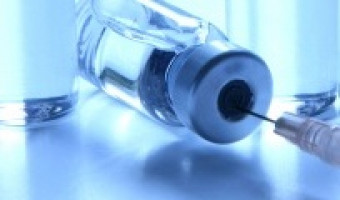
Although the COVID-19 vaccines have been proven safe and effective in the general population, little is known about whether patients with lung cancer would develop a protective anti-spike antibody response because these patients were excluded from most COVID-19 vaccine trials.
Previous studies demonstrated that patients with lung cancer suffered a 30% mortality rate from COVID-19 significantly higher than the general population.
In a new study published in the Journal of Thoracic Oncology, researchers from France showed that SARS-CoV2 vaccines are safe and effective in patients with thoracic cancer, most of whom are immunised after two doses.
A third shot given to 11% of patients with persistent low antibody titers resulted in an 88% immunisation rate.
The study was conducted by Valérie Gounant, MD and Gérard Zalcman, MD, PhD, from the University Hospital Bichat-Claude Bernard in Paris.
The researchers enrolled 306 patients with lung cancer, with a median age of 67.0 years.
Of these, 283 patients received two vaccine doses at 28-day intervals. SARS-CoV2-spike antibodies were measured using Abbot ARCHITECT SARS-CoV-2 IgG immunoassay, prior to first injection of the mRNA vaccine, as well as after the fourth week, and two-to-16 weeks after second vaccine dose.
After a six-to-seven-month median follow-up, only eight patients (2.6%) contracted proven symptomatic SARS-CoV-2 infection, with rapid favourable evolution. Of 269 serological results available beyond day 14 post-second vaccine dose, 17 (6.3%) were still negative, while 34 (11 %) were < 300 AU/mL (12.5th percentile)—the threshold from which a perfect correlation was found between anti-S antibodies and neutralizing antibodies—using a pseudo-neutralization assay.
In multivariate analysis, only age, chemotherapy as last systemic treatment within 3 months, and chronic corticosteroid treatment were significantly associated with a lack of immunisation.
Thirty patients received a third vaccine dose, with only three patients showing persistent negative serology thereafter, whereas the others demonstrated clear seroconversion.
No anaphylaxis reaction occurred among the 306 patients, with 587 vaccine doses administered. Safety data were available for 278 patients (90.1%), without significant safety concerns.
“Although, this report involves, to the best our knowledge, the largest series of patients [with thoracic cancer] receiving anti-SARS-CoV-2 mRNA vaccines that has been published to date, the sample size of the different patient subsets remains limited,” the authors write.
Source: The International Association for the Study of Lung Cancer (IASLC)
The World Cancer Declaration recognises that to make major reductions in premature deaths, innovative education and training opportunities for healthcare workers in all disciplines of cancer control need to improve significantly.
ecancer plays a critical part in improving access to education for medical professionals.
Every day we help doctors, nurses, patients and their advocates to further their knowledge and improve the quality of care. Please make a donation to support our ongoing work.
Thank you for your support.